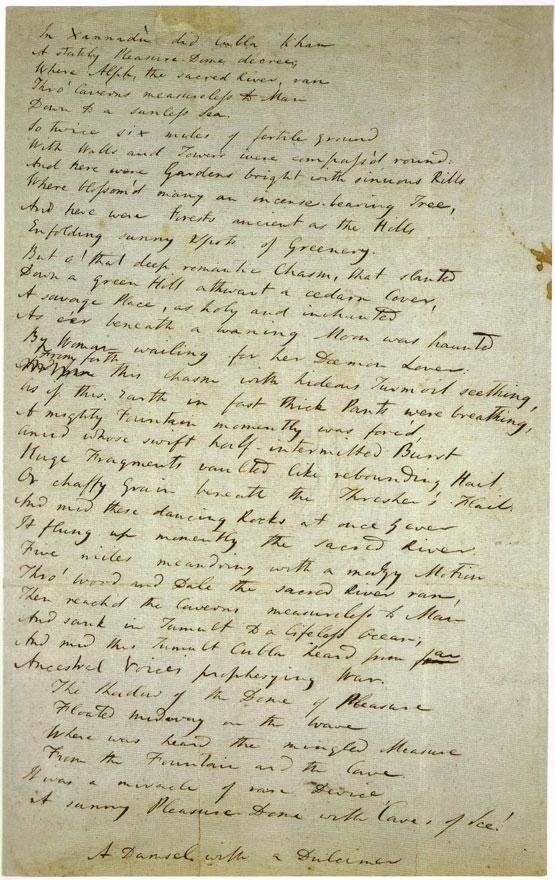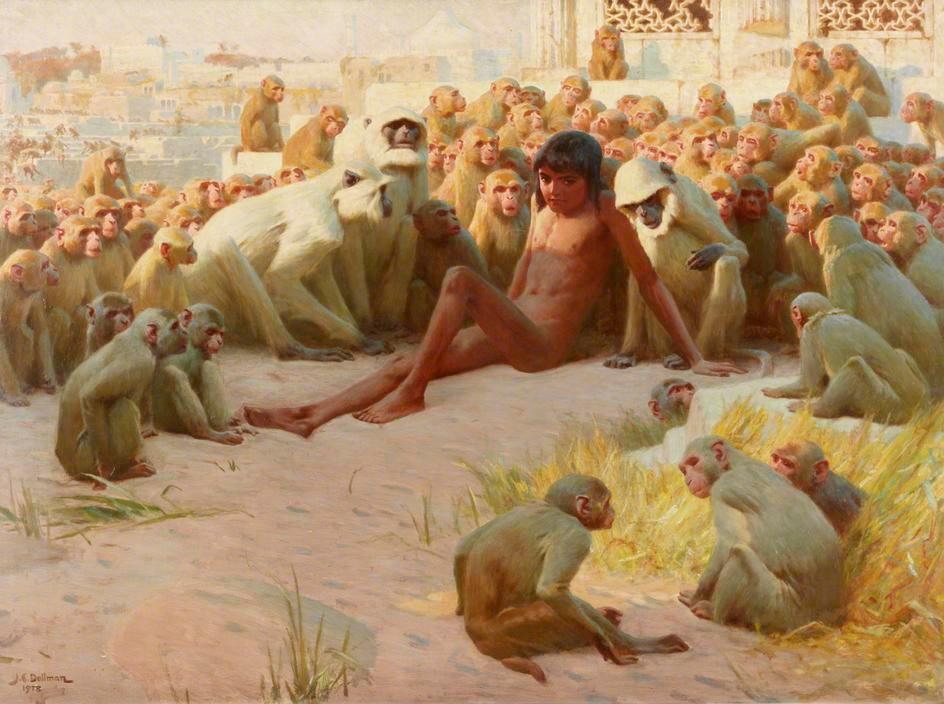In Xanadu did Kubla Khan A stately pleasure-dome decree: Where Alph, the sacred river, ran Through caverns measureless to man Down to a sunless sea.
Samuel Taylor Coleridge awoke with a start as these words thundered through his thoughts. Upsetting the volumes that littered his desk, he grasped at his pen, stabbed at his inkwell, snatched a scrap of paper, and shivered with wonder as his muse sang on:So twice five miles of fertile ground With walls and towers were girdled round; And there were gardens bright with sinuous rills, Where blossomed many an incense-bearing tree; And here were forests ancient as the hills, Enfolding sunny spots of greenery.
Such were the wild words, in 1797, that rushed like a roaring river from Coleridge’s pen like a cataclysm. Struggling with the effects of medication, he had fallen into a feverish slumber over an exotic travelogue that mentioned the capital city of the Mongol ruler, Kublai Khan, a grandson of Genghis Khan.But oh! that deep romantic chasm which slanted Down the green hill athwart a cedarn cover! A savage place! as holy and enchanted As e’er beneath a waning moon was haunted By woman wailing for her demon-lover! And from this chasm, with ceaseless turmoil seething, As if this earth in fast thick pants were breathing, A mighty fountain momently was forced: Amid whose swift half-intermitted burst Huge fragments vaulted like rebounding hail, Or chaffy grain beneath the thresher’s flail: And mid these dancing rocks at once and ever It flung up momently the sacred river.
The force of Coleridge’s poem, unlike any he had ever written before, lunged and loomed off the page in the lonely farmhouse room where it was suddenly and strangely born. Even as it sang of uncontrollable elements of primal power and fear, so did it itself, as a poem, possess that unbridled authority of artistic inspiration that every artist both longs for and fears. Coleridge wrote, and the poem took on a life that was wholly its own, as all great poems do.Five miles meandering with a mazy motion Through wood and dale the sacred river ran, Then reached the caverns measureless to man, And sank in tumult to a lifeless ocean; And ’mid this tumult Kubla heard from far Ancestral voices prophesying war! The shadow of the dome of pleasure Floated midway on the waves; Where was heard the mingled measure From the fountain and the caves. It was a miracle of rare device, A sunny pleasure-dome with caves of ice!
The images that dropped before him were like the discovery of a strange kingdom that was like poetry itself. From the dome of the mind to the depths of nature’s mysteries, imagination and inspiration are twin creative forces that can be beautiful or terrible, like heaven and hell, with music and noise, peace and war, the sacred and the savage. On Coleridge dashed, his brow damp with both fervor and fever.A damsel with a dulcimer In a vision once I saw: It was an Abyssinian maid And on her dulcimer she played, Singing of Mount Abora. Could I revive within me Her symphony and song, To such a deep delight ’twould win me, That with music loud and long, I would build that dome in air, That sunny dome! those caves of ice! And all who heard should see them there, And all should cry, Beware! Beware! His flashing eyes, his floating hair! Weave a circle round him thrice, And close your eyes with holy dread For he on honey-dew hath fed, And drunk the milk of Paradise…
Then, a knock at the door. Coleridge’s pen paused over the word “Paradise.” He rose to find a person on some small business. The matter settled, he returned to his desk only to find—to his shock and dismay—the vision had fled. “Kubla Khan” was finished where it lay unfinished. And so, Coleridge called it evermore “a vision in a dream, a fragment.”





